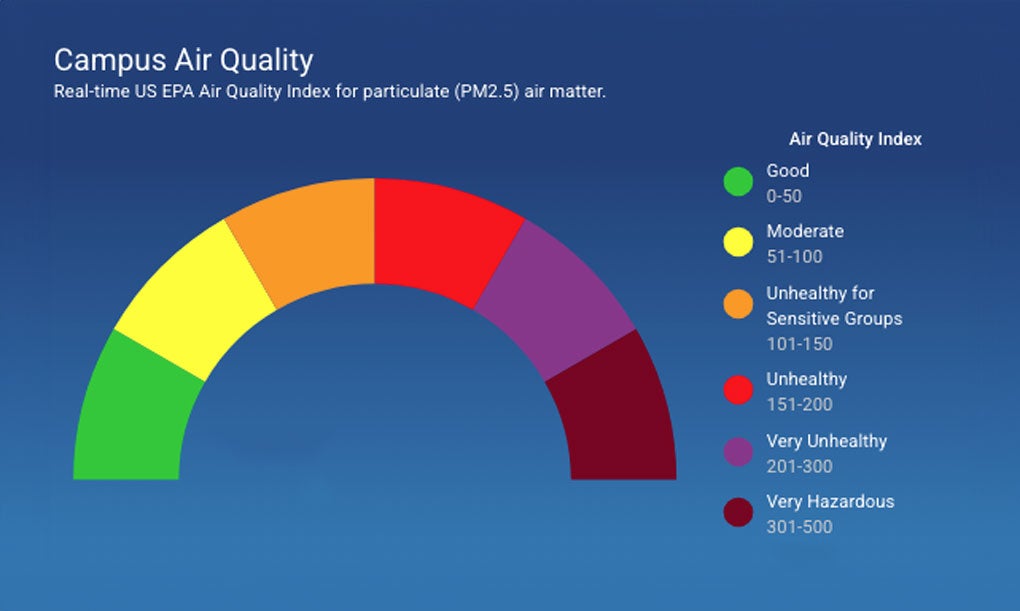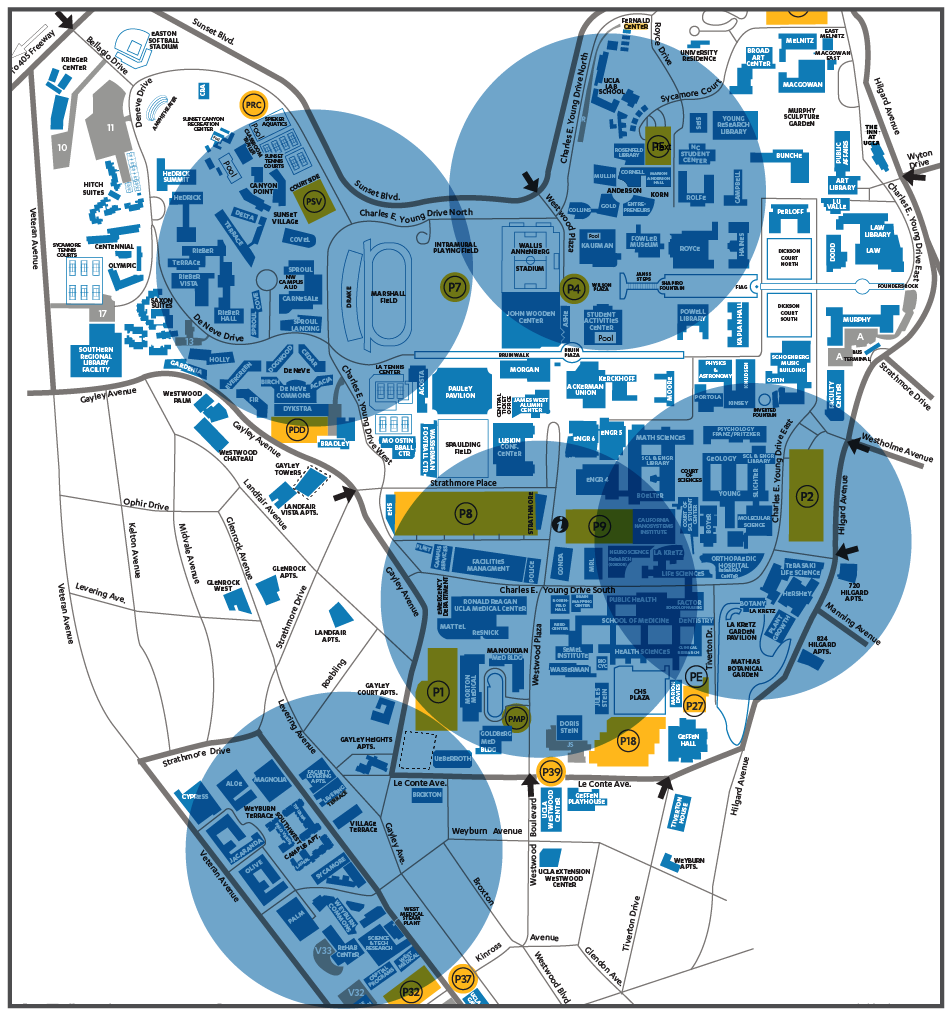UCLA prioritizes the health and well-being of its students, faculty and staff by closely assessing air quality through a monitoring system on campus.
There are five air quality sensors in activation: at Sproul Hall, the Anderson School of Management, the Terasaki Life Sciences Building, the Ronald Reagan UCLA Medical Center and the UCLA-owned Sycamore Court apartments in Westwood Village. The sensors are maintained and developed by UCLA Environment, Health & Safety and UCLA Facilities Management.
Campus Air Quality Dashboard
Features a US EPA Air Quality Index for particulate air matter and provides data on outdoor air quality across the campus. The tool allows users to:
- Check current air quality levels
- Monitor pollutants, including wildfire smoke
- Take action based on air safety recommendations

How Air Quality is Measured
UCLA’s air sensors provide localized data that reflect campus-specific conditions. The dashboard pulls data from the on-campus monitoring stations which detect particulate matter from fires, assessing their impact on campus.
Air Quality and Campus Operations
UCLA uses the data from our on-campus monitoring stations along with other local factors to assess the campus operational status. Our primary goal is ensuring safety for the UCLA community. The University of California system has implemented a decision-making matrix based on the AQI to guide each campus in modifying operations based on air quality and displays conditions using a color-code system.

Indoor Air Quality
UCLA prioritizes clean indoor air to support the health of students, faculty and staff with filtration systems.
- Many campus buildings are equipped with advanced HVAC filtration systems that use filters to remove pollutants. These systems are regularly maintained to maximize air quality indoors.
- Most residence hall rooms with air conditioning do not pull air from outdoors and, instead, recirculate and condition the air within the room. Exceptions are Centennial and Olympic Hall, which pull outside air and contain filters.
- Everyone is encouraged to keep windows closed during poor air quality events to maintain clean indoor air.
Stay Informed and Safe
- Check the Campus Air Quality Dashboard
- Reduce exposure to poor air quality with a highly protective mask, like an N95 respirator, if outside for long periods
- UCLA is providing N95 masks at residence hall front desks and the Arthur Ashe Student Health and Wellness Center
- Limit outdoor activities during poor air quality days if possible
- Keep windows and doors closed in dorms, classrooms and offices when air quality is deemed unhealthy
- Sign up to receive updates through the BruinALERT system and regularly visit the Bruins Safe Online page
- For campus-wide UCLA information and updates related to the current L.A. wildfires, visit UCLA Newsroom
Contact Information
UCLA Environment, Health & Safety
(310) 825-5689
https://ehs.ucla.edu




